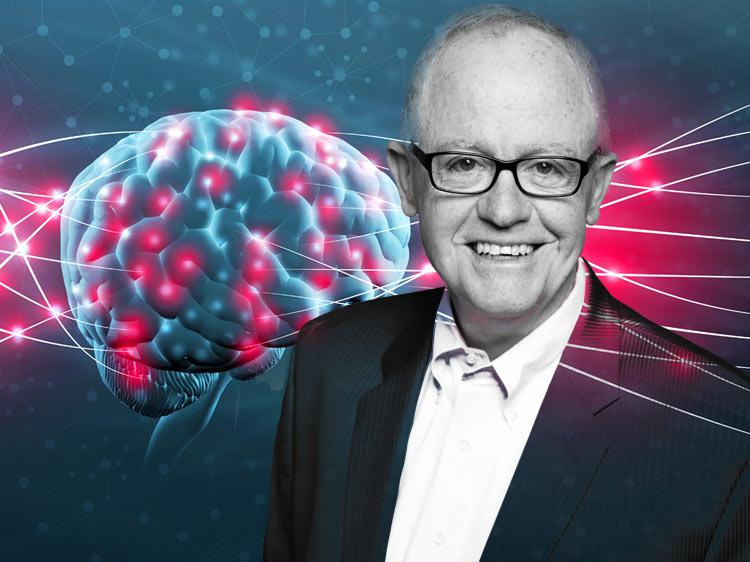How to talk your way into a job
Author and marketing maven James Crimmins explains the surprising science behind persuasion—and how you can use it to land your next job offer.

Any job description can give you a decent sense of what’s expected of applicants—skills required, experience needed, if travel’s necessary, etc. So you do your due diligence to make sure your resume mentions all the ways you are the perfect fit for the job.
But in order to actually get the job, you’ll still need to persuade someone to hire you.
Cue James Crimmins.
Crimmins has been a professional persuader for almost three decades. As chief strategic officer at ad agency DDB Chicago, he was the main marketing mind behind Budweiser, McDonald’s, Betty Crocker and many other big brands. He’s also taught marketing communication at Northwestern University’s Medill School, and in 2014, he launched PersuadeTheLizard.com, a site that ranks ads, PSAs and political campaigns on their persuasiveness.
Monster asked Crimmins, whose recent book is titled 7 Secrets of Persuasion: Leading-Edge Neuromarketing Techniques to Influence Anyone, how you can use his work—a blend of technique, approach and neuroscience—to persuade an interviewer that you’re the right person for the job.
Q. What’s the single most important thing for interviewees to keep in mind during a job interview?
A. If I had to name one essential thing, it’s this: Don’t talk too much about yourself. Answer the interviewer’s questions about your background briefly. Then turn the conversation around and ask, “Where would you like to see the company, or the organization, three years from now?” Let her talk. Next, ask, “What do you see that might prevent that from happening?”
This does two things. First, it shows you value the interviewer’s opinions and insights. So right away, in her view, you must be smart. And second, it gives you a chance to tell how your experience and abilities would fit.
Every organization is trying to get somewhere. Focusing on facts about your qualifications is not as important as creating a sense that hiring you will be the right move toward reaching whatever the company’s goal is.
Q. The part of your book about discovering people’s true motivations is fascinating. How do you apply it here?
A. One thing the latest neuroscience tells us is that people make decisions based on emotion, and then come up with explanations, after the fact, that seem “reasonable.” So you want to connect with the interviewer on that level of feeling. In marketing, this is called “laddering.” It’s about showing people how to feel the way they would like to feel.
If I want to sell faster Internet service, for instance, I’d show an ad where someone uses faster Internet speeds to get more done and feel more successful or even more powerful. It’s about taking a fact—faster Internet—and raising it to the level of an emotion.
One way to do this in a job interview is to ask about the people who have already been hired there—not their credentials, but what kind of people they are, their personalities, their work style. You’re looking for traits that don’t necessarily have anything to do with a formal job description. The idea is to find out the kind of person the interviewer wants to work with, day-to-day, and come across as that person.
Q. Sounds like what’s often called “cultural fit.”
A. It is—and it influences interviewers more than anything you could put on a resume. Incidentally, an interviewer will instantly, in the blink of an eye, pick up on whether or not you like him or her. And liking, or disliking, is mutual. As [the early 20th-century jack-of-all-trades] Will Rogers famously said, “I never met a man I didn’t like,” and it made him one hell of a salesman.
So you can give yourself an edge before you even go in for an interview, by researching the people you’ll be meeting, if you know who they will be. Look them up on social media, find out a bit about their backgrounds and their interests. This is hard to fake, but if you can develop a genuine liking for these people before the interview, you’re already halfway hired.
Anne Fisher has been writing about career and workplace trends and topics since 1996. She is the author of If My Career’s on the Fast Track, Where Do I Get a Road Map?



 network |
network |
